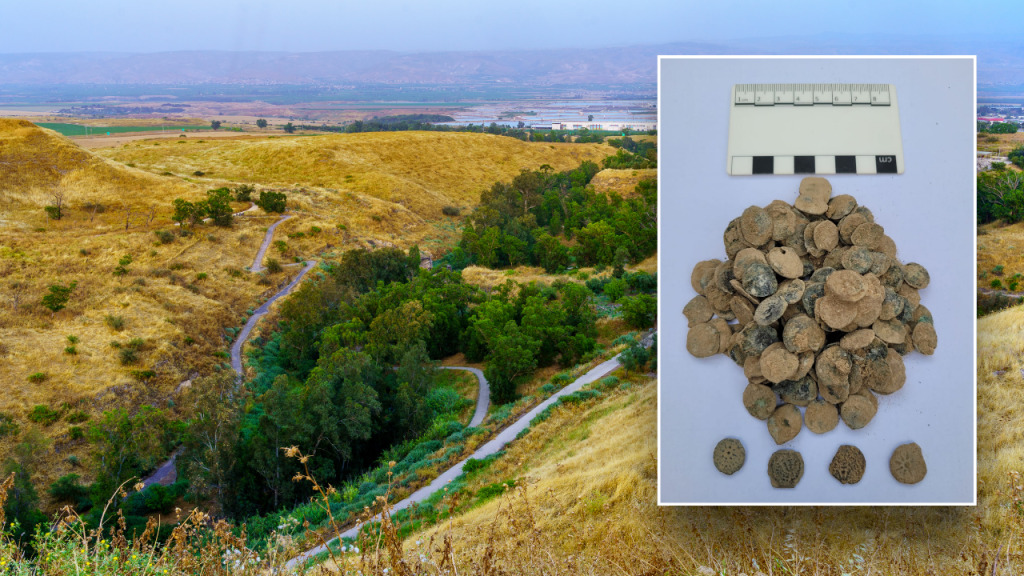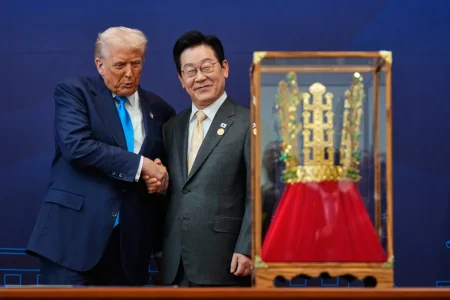A Remarkable Hanukkah Discovery: Unveiling a Trove of Ancient Coins in Israel’s Jordan Valley
Amidst the challenging backdrop of the Israel-Hamas war, a team of archaeologists and students unearthed a remarkable historical treasure in Israel’s Jordan Valley: a cache of 160 ancient coins dating back to the Hellenistic period. The discovery, announced by the University of Haifa just before the start of 2025, coincided serendipitously with the celebration of Hanukkah, adding a layer of significance to the find for the excavation team. The coins, bearing the likeness of Alexander Jannaeus, a Jewish king of Judaea who reigned from 103 B.C. to 76 B.C., offer a tangible connection to a pivotal period in Jewish history, predating the destruction of the Second Temple, a structure deeply intertwined with the Hanukkah narrative.
The coins, varying in shape and size, still retain faint markings and inscriptions in both Aramaic and Greek, providing valuable insights into the linguistic and cultural landscape of the era. This extensive collection represents the largest cache of Alexander Jannaeus coins ever discovered in Israel, making it an exceptionally rare and historically significant find. The University of Haifa highlighted the scarcity of such coin caches, emphasizing the unique opportunity this discovery provides for researchers to delve deeper into the reign of Alexander Jannaeus and the socio-economic dynamics of his kingdom.
The location of the discovery further enhances its historical value. The coins were found within a previously unknown “road station,” a type of ancient rest stop for travelers journeying along the route to Alexandrion, a fortress built by King Jannaeus. Unearthed within a room likely used as a kitchen, the coins paint a picture of daily life at this bustling waystation. This discovery not only illuminates the logistics of travel during the Hellenistic period but also offers a glimpse into the economic activities and infrastructure that supported movement across the region.
The road station itself proved to be a site of multiple discoveries. In addition to the coin cache, the archaeologists uncovered a mikveh, a ritual Jewish bath, and a pool or reservoir used for water storage. These findings add further layers of understanding to the site’s function and the cultural practices of those who frequented it. The presence of a mikveh suggests a Jewish community or travelers observing Jewish rituals, while the reservoir speaks to the practicalities of providing water for weary travelers in the arid landscape of the Jordan Valley.
The discovery resonated deeply with the excavation team, led by archaeologist Dr. Shai Bar, particularly given the ongoing conflict in the region. Dr. Bar emphasized the excitement and renewed sense of purpose the find brought to the students and volunteers, especially during the challenging times facing the nation. The discovery served as a powerful reminder of the enduring legacy of the past and the importance of preserving and understanding history, even amidst contemporary struggles. The timing of the discovery, coinciding with Hanukkah, added a layer of symbolic resonance, connecting the present with a historical celebration of resilience and hope.
This remarkable find joins a series of significant archaeological discoveries made in Israel in late 2024. These include a 1,700-year-old oil lamp bearing soot marks unearthed near the Mount of Olives in Jerusalem and a 3,500-year-old Egyptian amulet discovered by a 12-year-old Israeli girl. Together, these discoveries underscore the richness of Israel’s archaeological landscape and its potential to continue yielding invaluable insights into the past. The coins, in particular, offer a tangible link to a significant era in Jewish history and provide a window into the political, economic, and cultural dynamics of the Hellenistic period. Their discovery within a previously unknown road station further expands our understanding of ancient travel and infrastructure, while the concurrent discovery of a mikveh adds a layer of religious and cultural context. Amidst contemporary challenges, this archaeological find serves as a testament to the enduring power of the past and the importance of preserving and understanding history.















